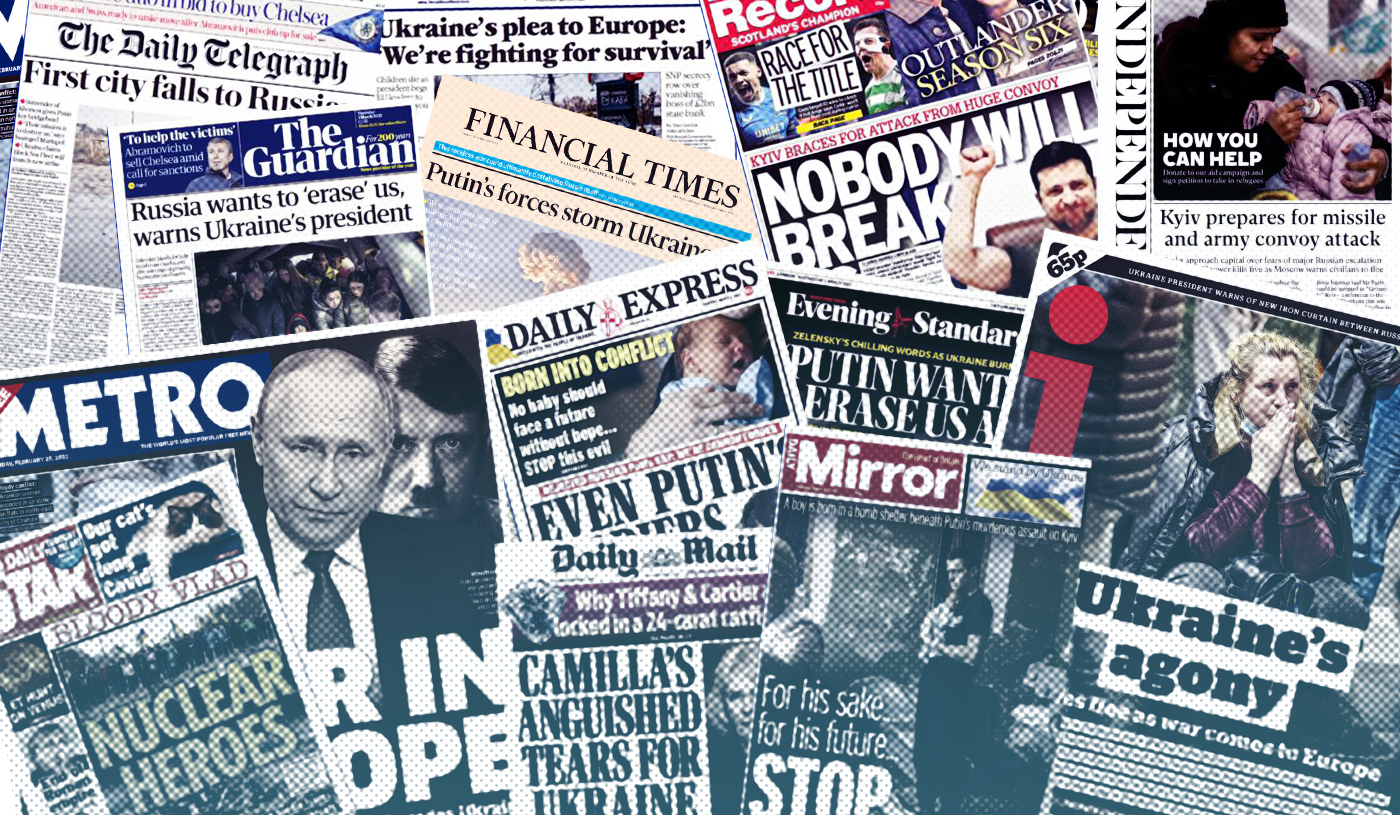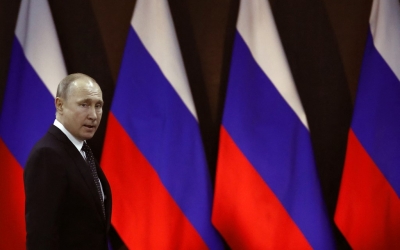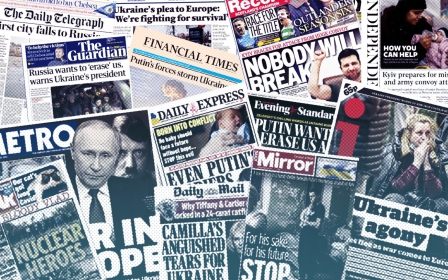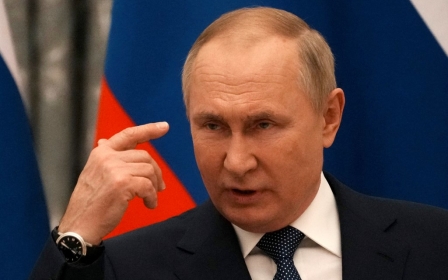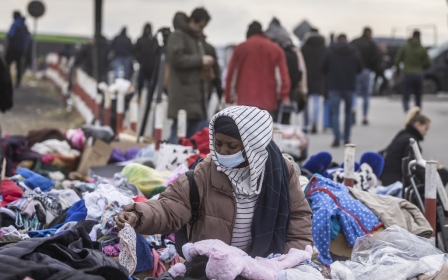Russia-Ukraine war: Why won't Britain allow any debate?
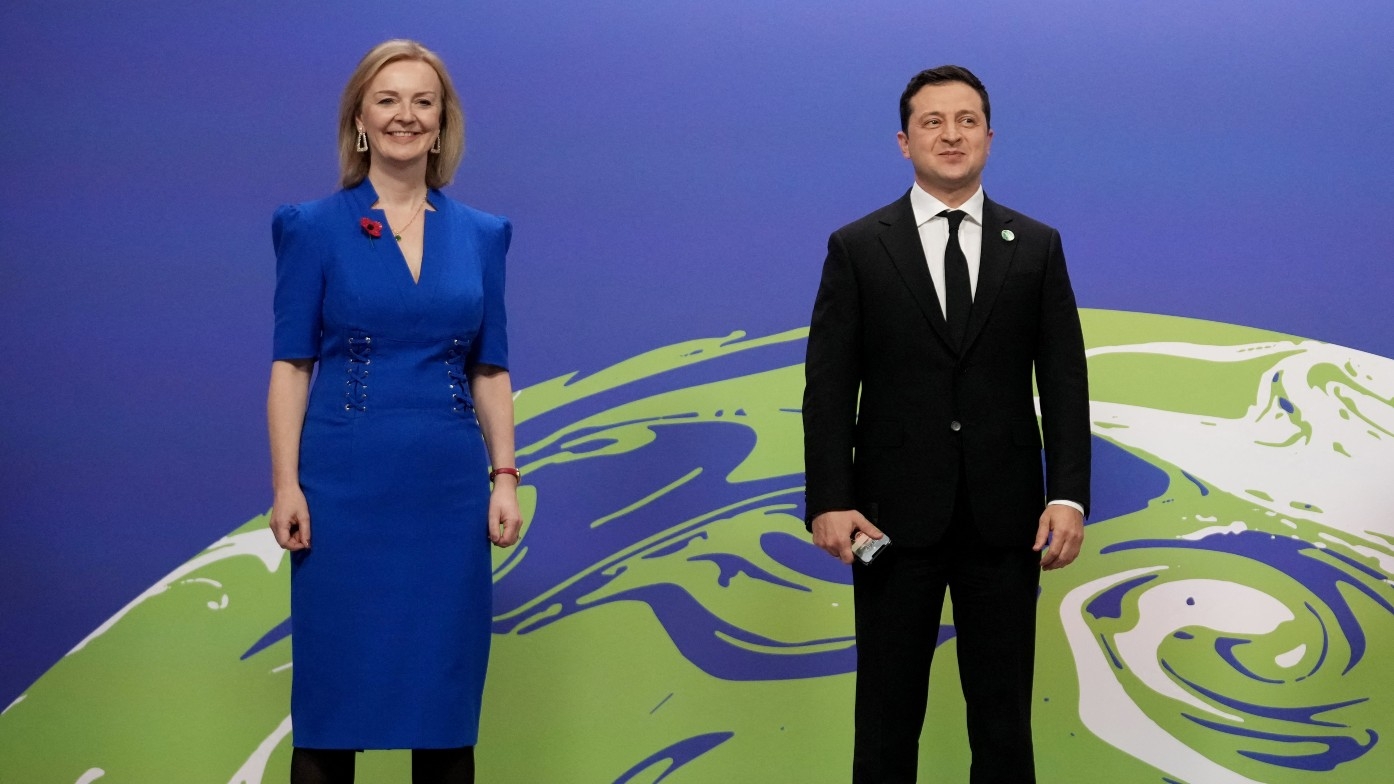
There has been a staggering lack of public debate over Britain’s Ukraine policy, given the immense damage the war has wrought on the British economy.
Inflation in the UK rose to a 40-year high of 10.1 percent in July; the government is allowing private energy companies to raise bills by some 80 percent to a maximum of £3,549 ($4,093) a year from October; and the Bank of England is likely to institute further interest rate hikes, heaping more misery on mortgage holders. Industrial action is spreading, and hundreds of thousands of people could refuse to pay bills and hit the streets in mass protest.
Yet, there has been nothing approaching a serious discussion of how we got here, beyond the most basic points, recited as a form of catechism - “Putin’s price hike”, “unprovoked war” - that are, in reality, designed to stifle public debate and manufacture consent.
The traditional anti-war left has been effectively banished from the mainstream media
The traditional anti-war left has been effectively banished from the mainstream media, where outlets such as the Guardian and the Independent have aligned with neoconservative stalwarts like the Economist and its social media influencers, propagating a policy of massive sanctions and rejection of diplomacy that parrots the government line.
Indeed, it recently came out that a Russian-Ukrainian peace deal was on the table in April, but former British Prime Minister Boris Johnson was dispatched to Kyiv to do the West’s work in stopping it.
New MEE newsletter: Jerusalem Dispatch
Sign up to get the latest insights and analysis on Israel-Palestine, alongside Turkey Unpacked and other MEE newsletters
Freshly minted prime minister, Liz Truss, now steps up as the new face of Britain’s suicidal militarism. One of Johnson’s most loyal lieutenants, she was dispatched to Moscow in February to warn of severe sanctions, but quickly shifted to the most recklessly bellicose language possible in the service of her leadership ambitions - an approach one columnist slammed as “tabloid diplomacy”.
Right-wing anger
Truss kept it up during the recent campaign, vowing to increase defence spending to three percent of GDP by 2030 from the current 2.1 percent, and performing the obligatory liberal interventionist chest pound over how ready she is to press the nuclear button.
The major television outlets in particular are on a mission to normalise Truss, whose bizarre 2014 speech - in which she boasted about Yorkshire Tea exports to China - has been a social media hit, even if Twitter had little ability to prevent her rise to the top. Nothing makes this clearer than the government and right-wing media anger this week over a comedian who mocked Truss on the BBC’s flagship political talk show, after which the BBC promised a “reset”.
Meanwhile, supposed leftist standard bearer the New Statesman has been pumping out the pro-war views of figures like Paul Mason, who was so anxious about flagging public support for the war that leaked emails show him collaborating with a Foreign Office counter-disinformation unit to smear critics of Nato policy.
Figures from the Stop the War Coalition are, of course, nowhere to be seen, because London media ignores them, while outliers such as Peter Hitchens are permitted to squawk from the sidelines, as if he was running in an election as the Monster Raving Loony candidate.
While in the UK, few question the pieties of Britain's Ukraine policy, the situation in the US is dramatically different. There are voices on the US left and right who are shut out of liberal and leftist media, but now get an airing on Fox News, no less, where they loudly object to the US foreign policy establishment’s war fixation at all costs.
Much of this is simply rhetorical posturing, in that Republicans in Congress still voted overwhelmingly to support President Joe Biden’s massive $40bn spending package to prop up Ukraine’s war effort, which leftist champion Bernie Sanders also approved - but at least there’s a semblance of public debate over foreign policy and its domestic impacts.
Global catastrophe
In Britain, there has been none of this, allowing a policy of stealth intervention to go essentially unchallenged. Though far less than the US financial commitment (much of which will go to defence contractors and lobbyists), Britain’s aid of at least £3.8bn ($4.4bn) has gone far.
Special forces supervised by MI6 are operating close to Ukrainian frontlines; the British army is giving intense military training to 10,000 Ukrainian infantry, and providing a long roster of weapons; and ex-servicemen are streaming there to fight as mercenaries. As Russia gradually secures control of the eastern part of the country, the destruction of major conurbations continues relentlessly.
Now, even the risk of nuclear war has entered the public conversation, since Russia’s defence strategy famously imagines the limited use of nuclear weapons as a tactical option in a conventional war. It doesn’t take policy expertise to realise that such thinking, if acted upon, would quickly spiral into global catastrophe. Yet, the psychological barriers in US-UK policy circles to avoiding such an outcome appear to be eroding.
At the same time, respected political scientists, such as John Mearsheimer and Stephen Walt, have been banished to the fringes of acceptability for articulating the view that, while absolutely culpable in pulling the trigger of invasion, Moscow acted in response to Kyiv’s inexorable transformation since 2014 into a US vassal state.
In short, sanctions and military escalation have been an own goal, driving the price of oil and food to outrageous levels and ruining the lives of ordinary people who had no say in these policies.
The fever dream of bringing down Russian President Vladimir Putin - for which we’re being sacrificed - isn’t working out. The Russian economy has not only survived, but the world’s major non-western powers have been able to break with Pax Americana by ignoring US dictates and maintaining political and economic ties with Moscow without consequence. Even Boris Johnson’s cynical ploy of using the Ukraine war to save his premiership fell flat on its face.
No matter how many times newspaper columnists and TV presenters mouth phrases such as “Putin’s war” in an effort to bury debate over its causes and how to end it, the fact is that government policy is a choice. And this one was rammed down the public’s throat without so much as an “excuse me”.
The views expressed in this article belong to the author and do not necessarily reflect the editorial policy of Middle East Eye.
Middle East Eye delivers independent and unrivalled coverage and analysis of the Middle East, North Africa and beyond. To learn more about republishing this content and the associated fees, please fill out this form. More about MEE can be found here.



